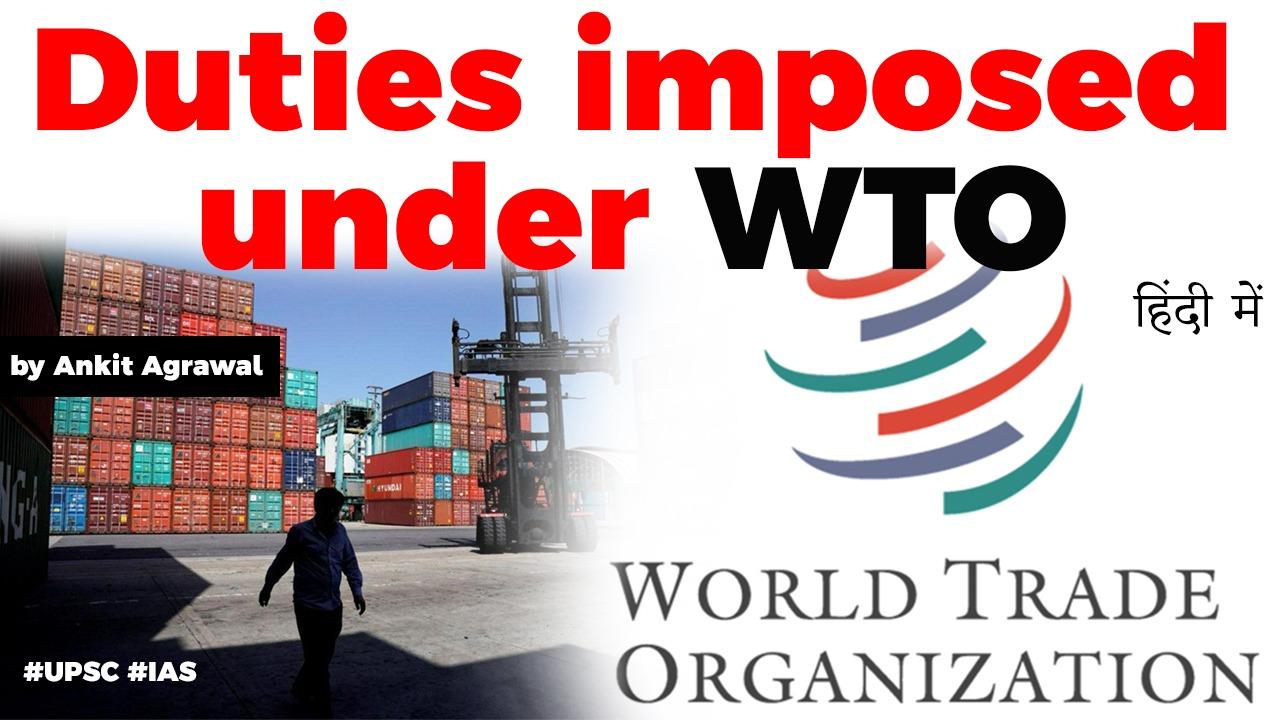Table of Contents
- The WTO officially commenced on 1 January 1995 under the Marrakesh Agreement, signed by 123 nations on 15 April 1994.
- It replaced the General Agreement on Tariffs and Trade (GATT), which commenced in 1948.

WHY THESE DUTIES ARE IMPOSED?
- The duties are aimed at ensuring fair trade practices and creating a level-playing field for domestic producers with regard to foreign producers and exporters.
ANTI DUMPING DUTY
- What is Dumping?
- If a company exports a product at a price lower than the price it normally charges on its own home market, it is said to be “dumping” the product.
What is anti-dumping duty?
- It is imposition of levy by importing country in order to counter the dumping of products and save the domestic market.
- GATT (Article 6) allows countries to take action against dumping.
- In order to impose this duty, the government has to be able to show that dumping is taking place, calculate the extent of dumping and show that the dumping is causing injury.
- So far, India has initiated maximum anti-dumping cases against “below-cost” imports from China.

- Chemicals and petrochemicals,
- Fibres and yarn,
- Machinery items,
- Pharmaceutical,
- Rubber and steel items.
COUNTERVAILING DUTY
- Countervailing duties (CVDs) is also known as anti-subsidy duties.
- They are imposed in order to counter the negative impact of import subsidies to protect domestic producers.
- They are imposed after an investigation finds that a foreign country subsidizes its exports.
- It is imposed in accordance with the GATT Article VI.

- In India, Anti-dumping duty & Countervailing duty is recommended by The Union Ministry of Commerce(i.e. by Directorate General of Anti-dumping & Allied Duties (DGAD))
- While the Union Finance Ministry imposes it.
SAFEGUARD TARIFF
- It is restricting of imports of a product temporarily if its domestic industry is threatened by a surge in imports.
- It is mainly temporary measure undertaken by government in defence of the domestic industry.
- It should be applied only to the extent necessary and should not last more than 4 years.
- Although in certain conditions, this can be extended up to 8 years.
- Safeguard measures are administered by Director General (Safeguard), under the Dept. of Revenue, Ministry of Finance.
- The Standing Board of Safeguards (chaired by the Commerce Secretary) considers the recommendations of the DG (Safeguards) and then recommends the impositions of the Safeguard Duty as it deems fit.
- But finally duty is levied by the Ministry of Finance only.
- It is imposed under GATT Article XIX

Latest Burning Issues | Free PDF






















 WhatsApp
WhatsApp